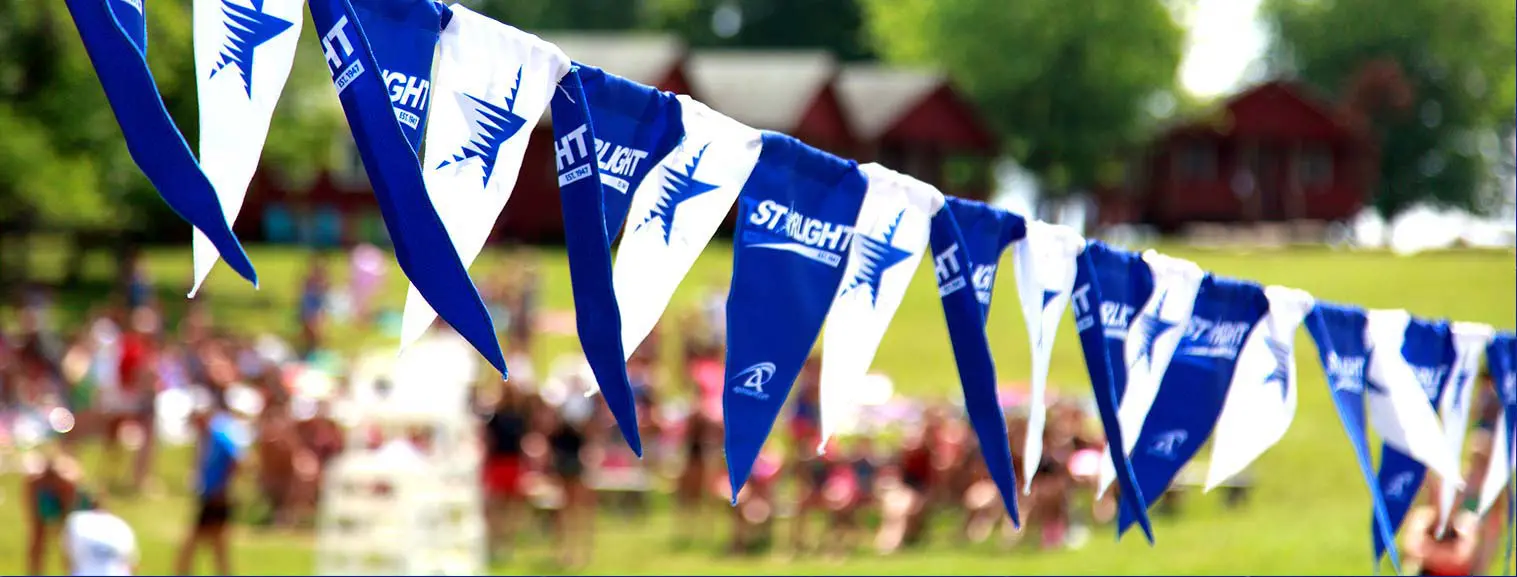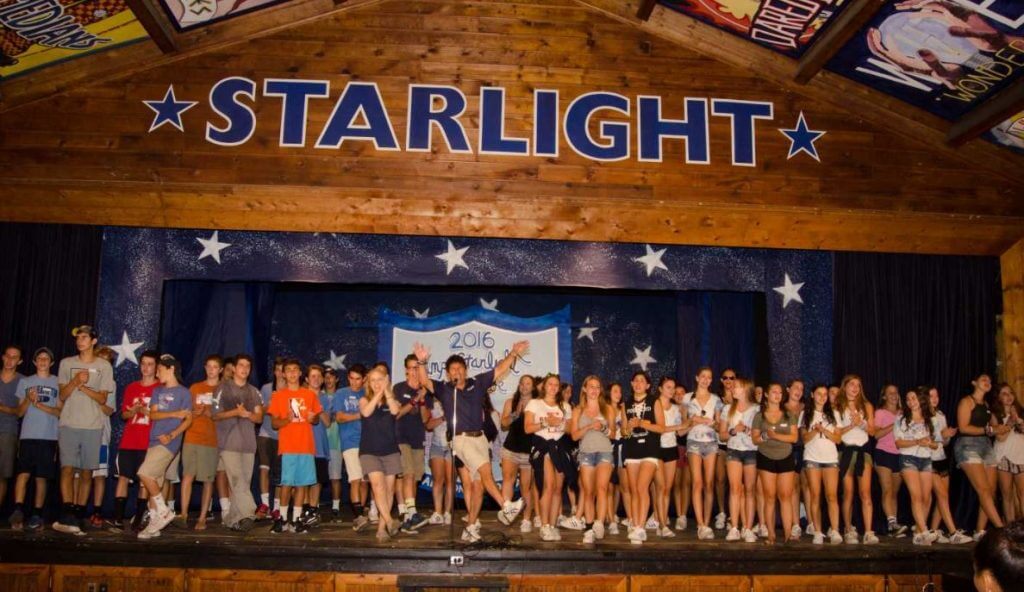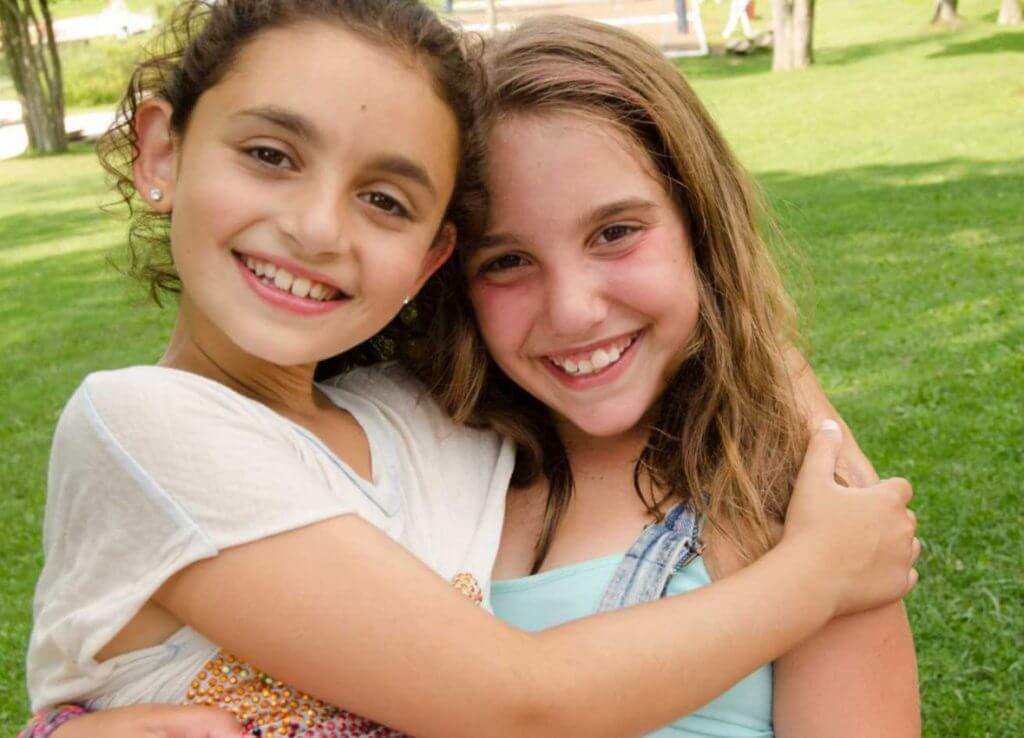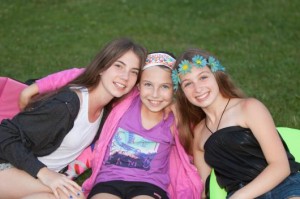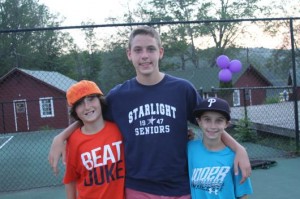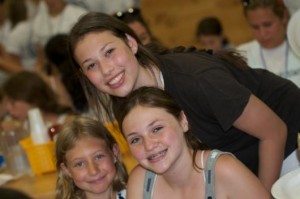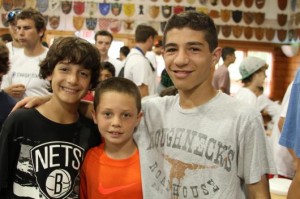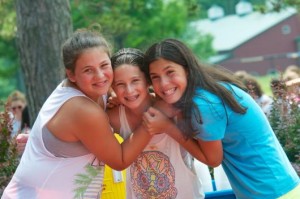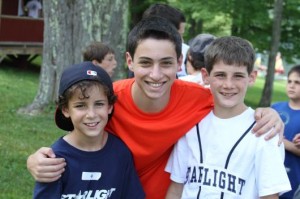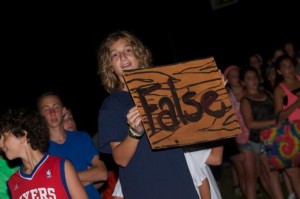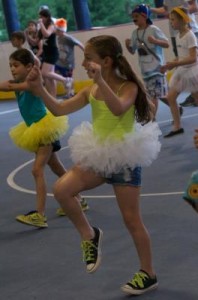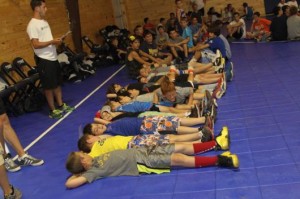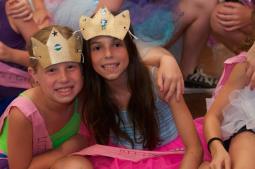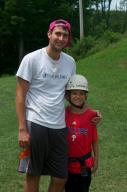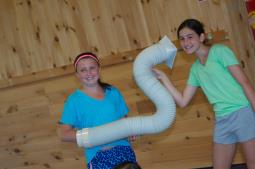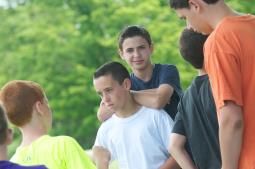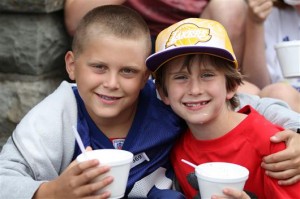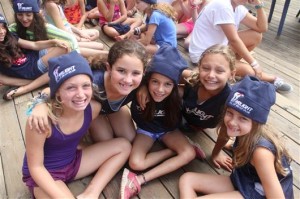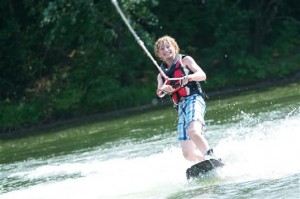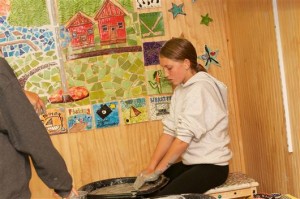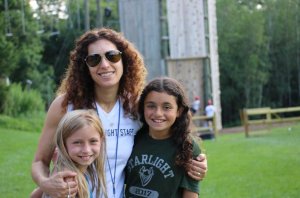
Camp Starlight knows that the weeks we get to spend with campers each summer is precious. It is an opportunity to do character building and confidence boosting. We have the opportunity to be the backdrop for millions of memories and connect people who can grow to be lifelong friends. The work we do here, although disguised as fun, is serious. We use the limited time we have with our campers and use it to instill 21st-century principles that promote strong character, morals, and ideals in every camper.
When campers are guided on how to solve their differences through careful and respectful mediation, they are learning how to disagree with others without being mean or hurtful. When they can identify their feelings and communicate it with others, they are learning conflict management skills and maturing in their emotional development. These tools are vital in navigating the “real world” whether it’s their school campus, their first job or their first relationship. At camp, kids learn to respect each other, listen without interrupting, compromise, communicate, and be patient and considerate and honest. These principles will make it easier for them to maintain healthy relationships as they grow.
Each camper has a responsibility to keep the campus as beautiful as it was when he or she arrived. Our zero tolerance policy for littering and our emphasis on taking care of the environment helps campers realize how they impact the environment and how important it is to keep the world around them clean. Campers spend most of their days outside, connecting with nature and learning to appreciate the beauty around them. Exploring and enjoying Mother Nature doesn’t come naturally to all campers, and spending time at camp helps develop an appreciation for the environment.
At camp, each camper has a story to tell. Each child arrives at camp with a history, a background, baggage (no pun intended) fears, strengths, and perceptions. As campers begin to integrate with each other, they quickly see how different they are all, but how those differences don’t need to divide them. They learn to help each other; to recognize a need in other campers and address it. There is no “us” and “them” at camp. Camp Starlight is intentional about fostering a generation of helpers, includers, and givers. We know that if we want a world full of people who care about each other, who don’t judge each other and who seek out opportunities to make others feel good, we have to start with the kids.
Campers go home with more friends, better skills and a lot to talk about. But our goal is that each camper leaves a bit better than they came. And that we can instill basic morals and ideals into them that will help them become better students, siblings, friends, and eventually, adults. Camp is safe, camp is fun, and camp is designed to better the lives of campers and their families every year.



